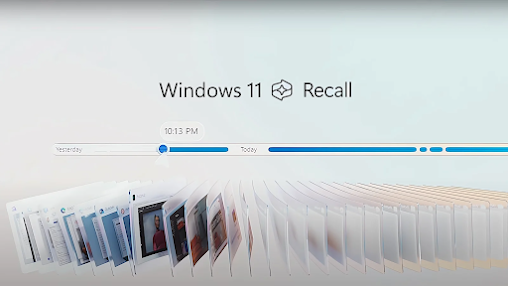Microsoft has decided to postpone the public trial of its AI-powered Windows Recall function on Copilot+ PCs in order to properly test and secure it.
When the new Copilot+ AI PCs arrived on June 18, it was originally scheduled for distribution in a public preview. However, the firm has now said that they are postponing this release and would instead make it available for preview to Windows Insiders. An update to a previous Windows Recall blog post states, "Recall will now shift from a preview experience broadly available for Copilot+ PCs on June 18, 2024, to a preview available first in the Windows Insider Program (WIP) in the coming weeks."
"Following receiving feedback on Recall from our Windows Insider Community, as we typically do, we plan to make Recall (preview) available for all Copilot+ PCs coming soon."
This update coincides with Microsoft President Brad Smith's meeting with the US Congress to discuss the company's recent security lapses, as well as a damning ProPublica investigation detailing how Microsoft prioritized business over security. Every few seconds, the recently added AI-powered feature snaps a screenshot of every window that is open on your computer. After that, an Azure AI model is installed on the device and examines these images in order to extract data from the picture and add it to a SQLite database.
With the help of Windows Recall, which pulls up screenshots for the phrases you search, you can easily locate historical data by doing human language searches for extracted data.
Privacy campaigners and cybersecurity experts have warned that Windows Recall is a privacy nightmare that will probably be misused to steal user data ever since Microsoft unveiled the function. Microsoft said that by utilizing Bitlocker to encrypt the data, the capability will come pre-installed on all new Copilot+ AI devices and keep data safe from theft. On the other hand, Bitlocker immediately unlocks a drive's contents upon user login, rendering malware and anyone with physical device access capable of accessing it.
Kevin Beaumont, a cybersecurity specialist, demonstrated how information-stealing malware that is already in circulation may be modified to take screenshots and Windows Recall databases for offline analysis and data theft. Ever since, Beaumont has led the charge to get Microsoft to remove, or at the very least "recall," the functionality in order to adequately protect it before to release.
On June 7, Microsoft gave in and declared that they will be adding further security by encrypting the database and making Windows Recall an opt-in feature that requires user authentication with Windows Hello before opening the app. What further security safeguards Microsoft intends to incorporate into the functionality is unknown. But given how it was first released without sufficient testing or security consideration, Microsoft will have a difficult time earning back users' confidence with this functionality.














.jpg)

0 Comments